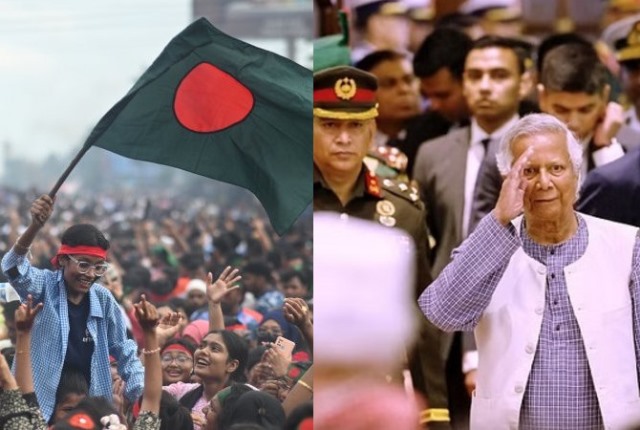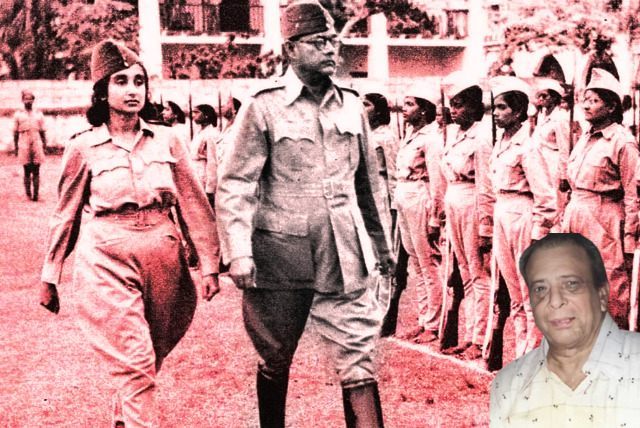
Bangladesh Regime Change: What Lies Ahead For India?
Bangladesh is going through one of its most turbulent periods. Chaos has erupted in the country due to Prime Minister Sheikh Hasina having fled. This has raised questions about Bangladesh’s inside balance and its family members with India.
The modern political disaster in Bangladesh is based totally on a combination of ancient grievances and new revolts. Sheikh Hasina has confronted allegations of corruption and electoral fraud for years. But her resignation has created an electricity vacuum that solely worsens the situation.
Although the financial system has grown dramatically, not everyone has shared it. Public discontent is excessive due to rising dwelling fees and vulnerable social services. The repression of opposition events and leaders has exacerbated the crisis. Among them is Khaleda Zia, the head of the Bangladesh Nationalist Party (BNP), who used to be launched amidst chaos these days. However, her launch is believed to be a try to fix political normalcy and not provoke the opposition further.
The position of many Islamist groups, especially the Jamaat-e-Islami, had muddied the waters—the Jamaat-e-Islami, which performed a sizable function in the 1971 struggle and has historically supported the BNP.
Muhammad Yunus, a Nobel laureate, has pledged to bring democracy and peace back. In turbulent times, voices like Yunus should be named for calm and dialogue.
Disturbing reviews have emerged about assaults on minority communities as properly as Awami League ministers. The assaults underscore the sectarian divisions that have worsened all through political turmoil. The current assaults have left these communities in concern and insecurity. Attacks on politicians spotlight entrenched enmities and the fragile kingdom of a disaster that has dragged on for almost two decades.
ALSO READ: A Diplomat’s View on Delhi-Dhaka Destiny
What challenges does the disaster in Bangladesh pose for India? How India responds to these shocks as a closed neighbor and steadfast friend would have a significant impact on future bilateral relations.
Economic relations: The ongoing violence in Bangladesh has significantly disrupted regular economic activities and severed critical connections to the global market. Indian businesses with substantial investments in Bangladesh are now facing considerable uncertainties, which could have broader implications for their operations and financial health. The economic interdependence between the two countries means that disturbances in Bangladesh are not isolated; they ripple across borders, potentially causing a chain reaction in Indian markets. This impact is particularly pronounced in border states like West Bengal and Assam, where trade and commerce with Bangladesh are vital. The disruption in these economic ties could lead to decreased trade volumes, logistical challenges, and potential economic instability in these regions, further complicating the already tense situation.
Security threat: The instability in Bangladesh poses a significant security threat to India, heightening concerns about regional safety and stability. This turbulence has the potential to exacerbate cross-border insurgency, as militant groups may exploit the chaos to strengthen their operations and infiltrate Indian territory. Additionally, the unrest could lead to an increase in unlawful immigration, as people flee violence and economic hardship in Bangladesh, seeking refuge across the border. This influx of migrants could strain resources and create further tensions in border areas.
Indian security forces are now faced with the critical task of bolstering defenses to prevent these spillover effects from destabilizing the region. They must enhance surveillance and border controls to detect and deter insurgents and manage the complexities of illegal immigration, which may involve both humanitarian challenges and security risks. The situation demands a coordinated response to safeguard national security and maintain peace in the border areas, ensuring that instability in Bangladesh does not undermine India’s internal security.
Political grounds: On the political front, it is essential for India to engage proactively with emerging leaders and influential factions within Bangladesh to ensure long-term stability and foster continued cooperation between the two nations. As the political landscape in Bangladesh evolves, with new leaders and factions gaining prominence, India must build and maintain strong relationships with these actors to influence positive outcomes and mitigate potential conflicts.
Strategic engagement with these rising political figures and groups will be key to navigating the complexities of Bangladesh’s internal dynamics. By establishing open channels of communication and fostering mutual trust, India can play a vital role in shaping a stable and collaborative political environment in Bangladesh. This engagement will not only help in addressing immediate challenges but also in laying the groundwork for sustained bilateral relations, ensuring that both countries can work together effectively on issues of mutual concern, such as security, economic development, and regional stability.
Furthermore, by supporting democratic processes and inclusive governance in Bangladesh, India can help promote a more stable political climate, reducing the risk of radicalization and political unrest. This approach will also enable India to better anticipate and respond to changes in Bangladesh’s political landscape, ensuring that its interests are protected and that the two countries continue to enjoy a strong, cooperative relationship in the years to come.
Humanitarian perspective: India ought to be prepared to help humans (by supplying them with vital aid). With its regional energy tag, India incorporates a positive quantity of strategic and ethical accountability to assist Bangladesh throughout these turbulent times. Providing humanitarian assistance, scientific care, food, and a haven for human beings experiencing homelessness will be essential.
Regional stability: The stability of religion in the region is deeply intertwined with broader geopolitical and economic dynamics. The disaster has far-reaching implications for the regional balance of power in South Asia. India, as the primary electricity provider in the region, plays a crucial role in maintaining this balance. Its position as a key intermediary not only affects the distribution of energy resources but also holds significant influence in shaping diplomatic relations and fostering stability. Consequently, India’s role as a middleman is vital in the pursuit of a peaceful resolution to the crisis, as its actions and decisions will have a direct impact on the religious and political equilibrium in the region. The interconnectedness of energy security, political stability, and religious harmony underscores the complexity of the situation and highlights the importance of India’s leadership in navigating these challenges.
This is Bangladesh’s second reckoning and the opportunity for a rebirth. This, too, is India’s probability of cementing its function as a South Asian stabilizing power. The India-Bangladesh relationship is now not simply bilateral but a partnership based totally on history, culture, and interests. At this vital factor for Bangladesh, India’s value will be increased more than ever as a neighbour and close friend. Both international locations must take into account the ties that unite them now greater than ever all through this disaster and work together.
The writer is an Indian technocrat, political analyst, and author. His social media handle is @prosenjitnth
For more details visit us: https://lokmarg.com/



